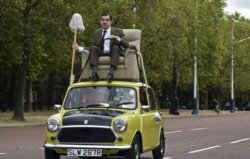
— About 50 percent of U.S. consumers want nothing to do with purchasing fully autonomous cars as acceptance levels of sharing the roads with driverless cars have dropped across the country.
It was just two years ago that 30 percent of consumers said they would never buy a fully autonomous vehicle.
Researchers also found in 2016 about 63 percent of the public said the roads would be safer if cars were automated, but only 45 percent hold that view now.
The research comes from Cox Automotive, the parent company of Kelley Blue Book and Autotrader. Cox researchers found consumers are starting to get a better grasp of the complex nature of self-driving cars and a better understanding of the technology has decreased confidence in fully autonomous cars.
About 39 percent of the youngest generation claim they wouldn't buy a fully autonomous car, making them the largest group confident of the technology. Baby Boomers? Not so much, as 71 percent say there is no way they will purchase a fully driverless car.
And when driverless cars start hitting dealer lots, dealers in urban areas will have a better chance of unloading the vehicles compared to dealerships in rural locations as urbanites are more likely to buy autonomous cars.
Consumers seem to be accepting of Level 2 technology that assists drivers with avoiding lane changing and forward and rear-end collisions.
Self-driving companies did get at least a little good news from the report when 68 percent of the public said they would rather ride in a fully autonomous car compared to the 39 percent who would rather hitch a ride with a total stranger.
The research joins previous driverless car studies that indicate most consumers aren't jumping for joy over the prospect of fully autonomous vehicles.




